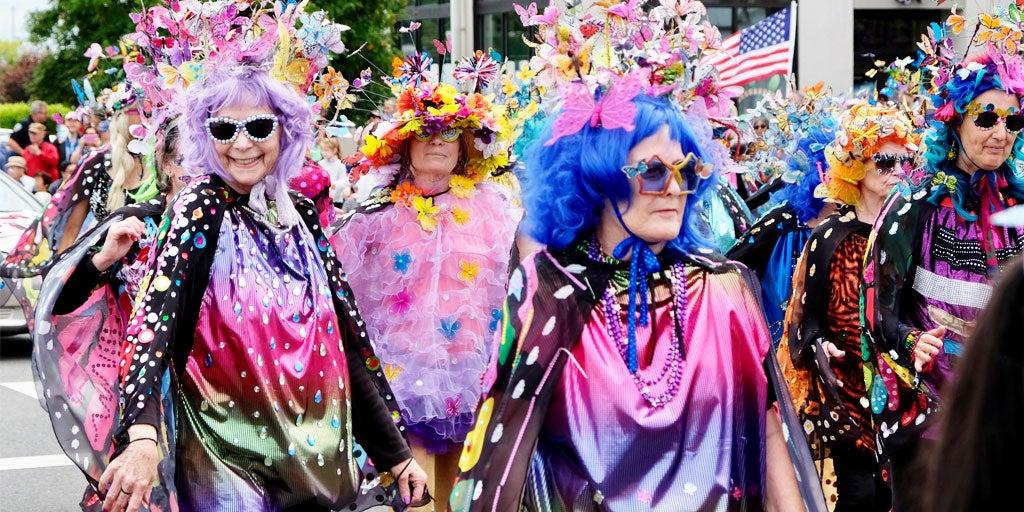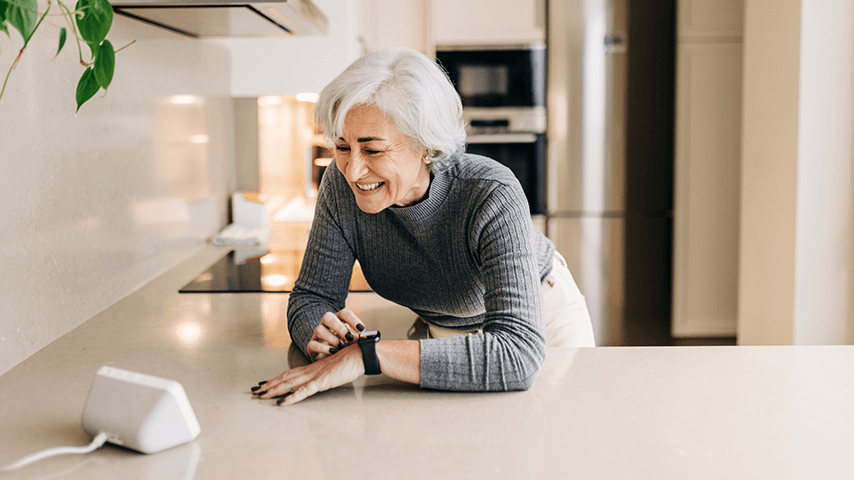![“When you have a good [woman] friend, that person is part of your breath,” especially as you age.](/_next/image/?url=https%3A%2F%2Fassets-us-01.kc-usercontent.com%3A443%2Fffacfe7d-10b6-0083-2632-604077fd4eca%2Ff6da4f28-f12c-485f-a8c5-43d23e5b1333%2FThe-Twisted-Pixies_03-2020_Fidalgo-Living-Magazine_Joel-Kifer-Katie-Bernard_1336x614.jpg&w=3840&q=75)
It all began in 2005. Bonnie Nelson was out walking with a few of her friends in Anacortes, Washington, talking about what they wanted to do for the summer.
“I had recently read The Divine Secrets of the Ya-Ya Sisterhood and The Sweet Potato Queens,” Nelson recalled, “and the idea of being in a local parade was on my mind. We decided to come up with costumes and join in the Fourth of July Parade.”
And with that, the Twisted Pixies was born, and what Nelson and her friends thought would be a one-time event has turned into a years-long journey of friendship, camaraderie, and increasingly elaborate costumes. Over time, the group’s numbers have grown—from six to more than 50—as has their support for one another.

(Fidalgo Living Magazine, Photos By: Joel Kifer and Katie Bernard)
When they meet to make the costumes for the summer parade, there are always “heartfelt conversations about the serious issues we deal with—death, illness, financial concerns, life changes, and so on.” For all of us, “it's a safe place for sharing, and always mixed with much laughter, as we can switch from the topic of cancer treatments to a serious discussion of how much sparkle we should add to our head pieces or sunglasses or some other costume part.”
Women friendships. Important for our well-being, deeply gratifying, sometimes complicated, always enriching.
Women friendship superpowers: talk and trust
All friendships are important. Let’s acknowledge that right off the bat. And many friendships are powerful and long-lasting. But there is plenty of research to indicate that there are some aspects of women friendships that distinguish them from other friendships.
One aspect involves talking. Gail Jefferson, a sociologist, called it “troubles talk” and noticed it in groups of women all over the world. Women count on one another for emotional support and they do this by listening closely, giving advice, and boosting each other’s self-esteem. Deborah Tannen, author of You’re the Only One I Can Tell: Inside the Language of Women's Friendships, has noted that “women tend to talk more often, at greater length, and about more personal topics.”1 This talking lends itself to commiseration, a feeling that there’s someone who’s gone through something similar, and it “sends a message of connection and caring,” Tannen said.
Trust is another important aspect of women friendships. And this trust often arises from the feeling of being able to be one’s true self with your woman friend. For Ginny Adams, this is certainly the case. She feels that she can “bare her soul” and “go deeper with (women) friendships.” She cites her over 40-year friendship with Barb Matter as an example.
It’s always been as though we’re sisters in spirit, having someone to confide in as an intimate friend that you can share deeply with and trust, and that you can be yourself with, and accept each other for all of our flaws. She’s a touchstone and an anchor for me. And it goes both ways.”
For Adams, there is no doubt that this friendship has been central and necessary to her life. It was especially critical during the years when both were young, single mothers: “For single women, friendships are really important. We were still raising our kids and supported each other as parents. We became godparents to each other’s kids.”
Friendship across distance
When Mary Pat O’Leary met her friend while walking to her first day at junior high school in the 1970s, little did she know the friendship would last for more than 50 years and would withstand the distance of living in different states for most of this time. In fact, distance has not been a barrier at all to this lifelong friendship. They talk frequently, send each other cards on holidays and birthdays, and visit one another nearly every year.
She is continually impressed by, and grateful for, her friend’s generosity, and this generosity is part of the glue that enriches their friendship. “If she’s reading an interesting book, she’ll send me a copy of it. We’re able to share ideas and interests together.”
They’ve seen each other through health crises and other tough times. O’Leary knows that she always has a virtual shoulder to cry on.
“The calls and support, that sense can come through the phone. I feel the support and the warmth. I can tell her anything and vice versa. I don’t feel judged. I don’t have to wear a mask. I can be authentically me.”
And maybe most meaningful is the profound feeling that O’Leary experiences with this friendship—something that goes beyond words: “ When you have a good (woman) friend, that person is part of your breath.”
The positive ripple effect of friendship
The impact of a woman friendship can go well beyond the immediate friendship itself. For Ginny Adams and Barb Matter, their friendship has spawned a next-generation friendship between their daughters. The close bonds of one generation have made friendship and trust possible for another generation. And modeling a positive friendship between two women can be extremely powerful.
As Nelson of the Twisted Pixies noted: “We've had such overwhelming support for what we represent—a group of brave, creative, spunky, and fun women, who want to put aside the serious side of life, if only for a moment, and celebrate the joy of living. A lot of us in the group are older and we frequently get comments from younger ones along the parade route that they want to be like us when they grow up. My niece, who's now 52 years old, told me many years ago that I was a great example and role model for her because of what we do.”
Special thanks to the following Aging Mastery partners in Washington state for contributing their stories to this article:
- Bonnie Nelson, Aging Mastery Program Coordinator, Anacortes
- Virginia (Ginny) Adams, State Aging Mastery Program Coordinator, Port Townsend
- Mary Pat O’Leary (RN, BSN), Senior Planning and Development Specialist II, Area Agency on Aging City, Seattle
Sources
1. Professor Deborah Tannen speaking at Georgetown University. Found on the Internet at https://www.youtube.com/watch?v=uZ5rWGYboSs


